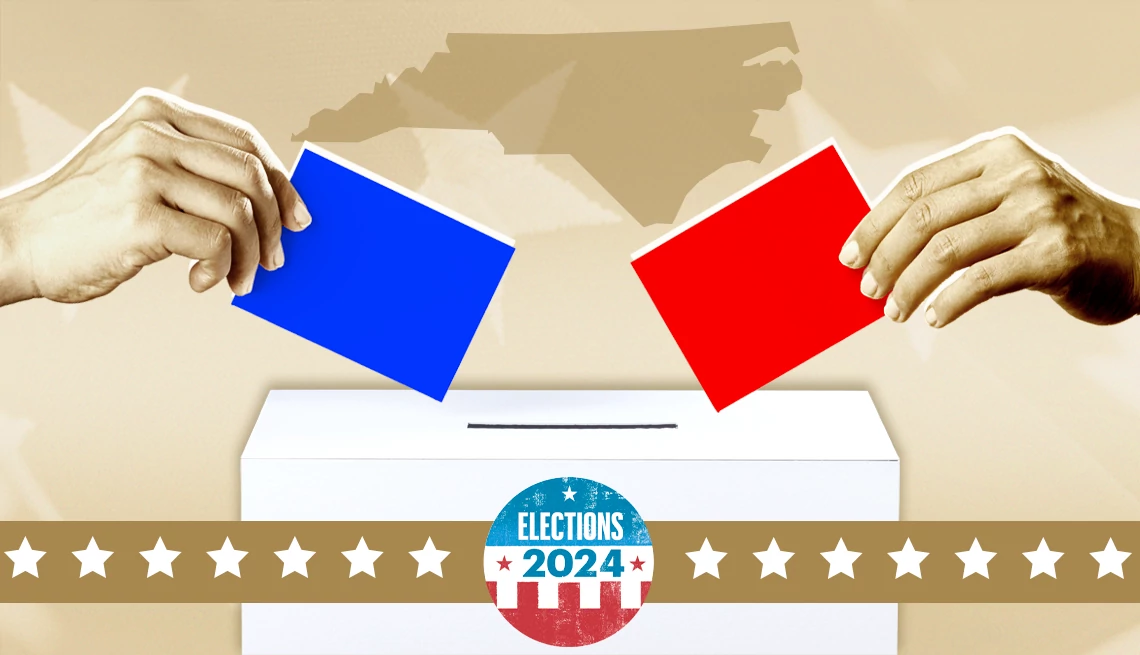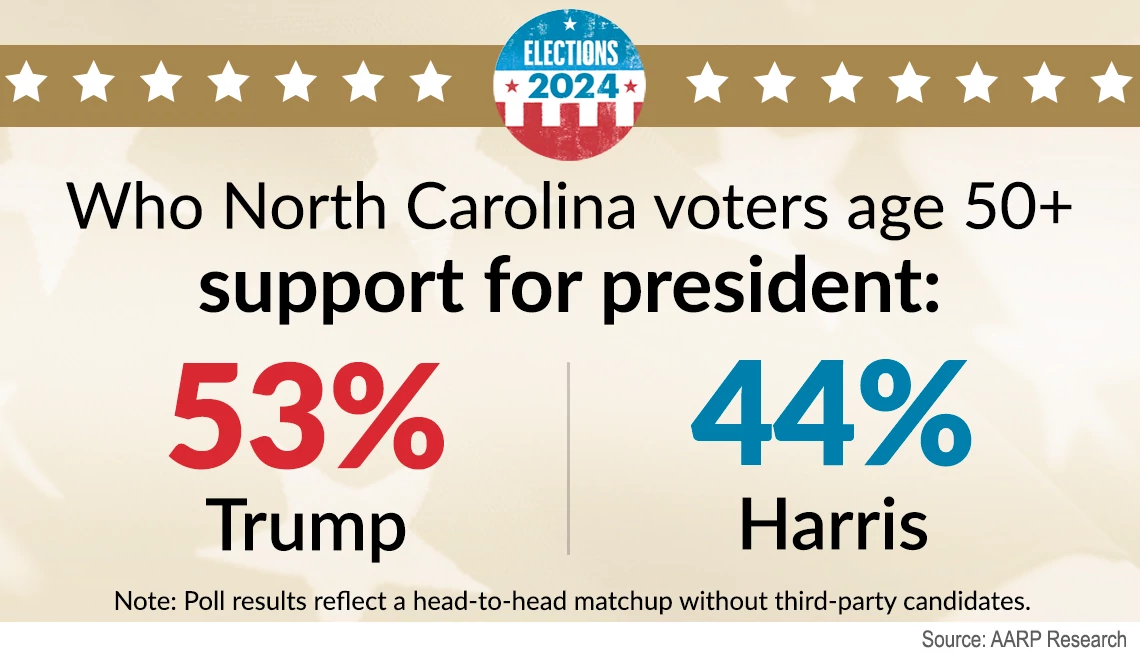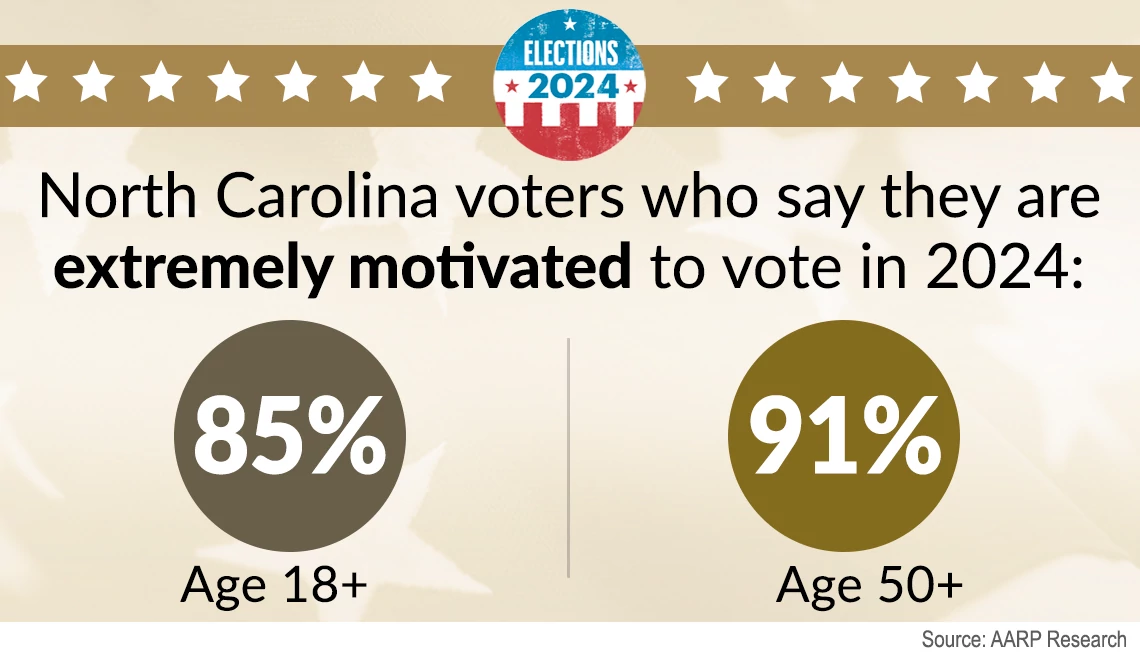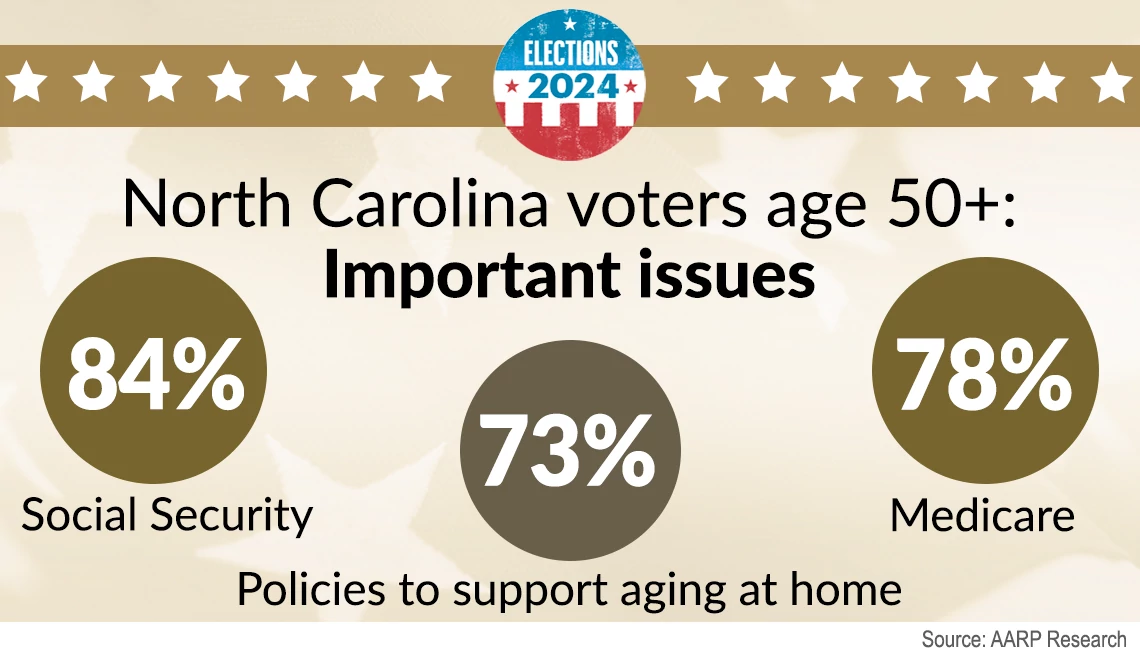AARP Hearing Center


In a close race for the presidency, Republican Donald Trump has a slight lead among likely North Carolina voters over Democrat Kamala Harris, according to an exclusive AARP poll released Wednesday.
In a head-to-head matchup, 50 percent of likely voters favor former President Trump while 47 percent prefer Vice President Harris, the poll found. Three percent say they are undecided or will vote for someone else.
Trump’s lead widens to 9 percentage points among all voters 50-plus, according to the poll. Harris has the advantage among older Black voters. Ninety-three percent of voters in this demographic say they would cast their ballot for her.
“When you get down South, you really do have to look through a racial lens to see what’s going on politically,” says Bob Ward, a partner with Fabrizio Ward, who conducted the bipartisan AARP-commissioned survey along with Impact Research.
“Trump has a 36-point advantage with white voters over 50,” says Jeff Liszt, a partner with Impact Research. “So it is like you’ve got two races going on among older voters.”
North Carolina is a presidential battleground state in the 2024 election, and whoever wins it will get 16 electoral votes toward the 270 needed for the presidency. In 2020, Trump won the state by a small margin, receiving nearly 74,500 votes more than President Joe Biden.


Pollsters interviewed 1,324 likely voters from Sept. 11, one day after the presidential debate between Harris and Trump, through Sept. 17. The results are within the poll's margin of error of plus or minus 4 percent for likely voters and plus or minus 3.5 percent for older voters.
Ninety-three percent of those polled say they were aware of the debate, and 76 percent say they watched it live. Asked who won, 53 percent say Harris, and 29 percent point to Trump.
“I think voters are really tuned into this election,” Ward says. “You’ve got over three-quarters of North Carolina voters who say they watched the debate. That’s an eye-popping number.”
Forty-seven percent of likely voters view Trump favorably while 50 percent have an unfavorable opinion. For Harris, the numbers are almost identical, with 47 percent having a favorable opinion versus 49 percent unfavorable.































.jpg?crop=true&anchor=13,195&q=80&color=ffffffff&u=lywnjt&w=2008&h=1154)


































More From AARP
Meet Election Poll Workers Showing Up Year After Year
Civic responsibility, social connections and even pay are prime motivatorsOlder Voters Are Focused on the Economy This Election
This powerful voting group has pocketbook issues top of mindHow to Register and Vote in the 2024 Election
State-by-state guide to everything you need to knowRecommended for You